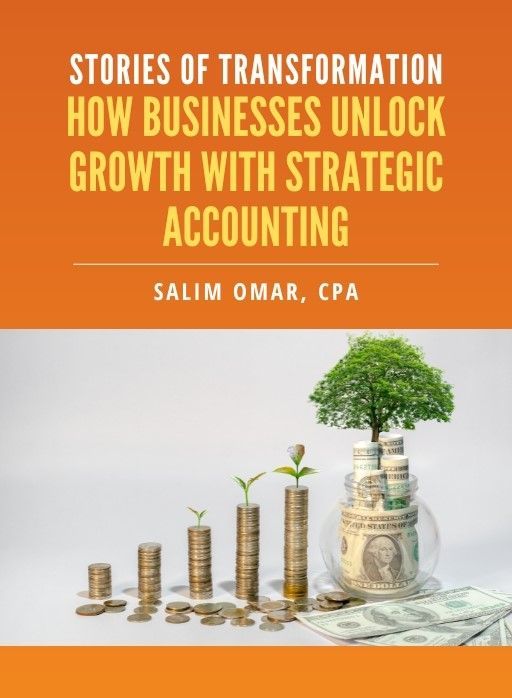Beyond Cash: Creative Charitable Giving That Benefits Your Business
When Giving Back Goes Beyond the Cheque
Charitable giving doesn’t have to mean writing a cheque and moving on. Today’s most forward-thinking business owners are reimagining generosity — not just as a social good, but as a strategic advantage.
From donating time, expertise, and inventory to forming long-term nonprofit partnerships, creative giving helps you build brand trust, engage employees, and access meaningful tax benefits — all at once.
At Straight Talk CPAs, we’ve seen businesses turn smart philanthropy into measurable impact — for their communities and their bottom line. Let’s explore how you can do the same.
1. Donate Goods or Services, Not Just Cash
If your business sells products or services, you already hold valuable assets that can make a difference.
- Inventory donations: Unsold or excess goods can often be donated to qualified organizations, potentially giving you a fair market value deduction under IRS rules.
- Professional services: Offering pro bono expertise — from design and consulting to financial or legal guidance — provides real impact while strengthening your brand’s credibility.
Example: A marketing agency that provides free branding work for a local nonprofit not only builds goodwill but can deduct legitimate business expenses tied to that project.
Pro tip:
Always document the fair value of what you give — the IRS rewards generosity, but it also requires records.
2. Leverage Volunteer Time as Team Building
Cash flow tight? No problem — giving time can be equally valuable.
Organize company-wide volunteer days or skill-based initiatives where your team contributes their expertise to community causes. It’s more than CSR optics — it builds morale, leadership, and retention.
According to Deloitte’s Volunteer Impact Study, 89% of employees believe companies that sponsor volunteer activities offer a better workplace culture.
That’s ROI beyond any balance sheet.
Bonus:
Some volunteer-related costs, such as mileage or materials, may be deductible if properly documented.
3. Donate Appreciated Assets for Bigger Tax Wins
Instead of giving cash, consider donating appreciated assets like stocks, bonds, or even cryptocurrency.
Why?
This strategy allows you to
avoid capital gains tax on the appreciation while still receiving a
charitable deduction for the full market value.
This approach is especially useful for business owners with investment portfolios or those who’ve seen gains in business equity.
Example:
A founder who donates appreciated stock worth $25,000 can deduct that full amount and sidestep taxes on the appreciation — maximizing both impact and efficiency.
4. Partner with Charities, Don’t Just Donate to Them
Short-term donations fade. Partnerships last.
Forming ongoing relationships with nonprofits aligned with your brand values deepens both community and customer trust.
- Co-host local events or awareness campaigns
- Offer ongoing accounting or operational support
- Sponsor educational programs related to your industry
Strategic partnerships keep your giving authentic and visible — and in the age of transparent brands, authenticity converts.
5. Consider a Donor-Advised Fund (DAF)
Want flexibility with timing and impact? A Donor-Advised Fund can be your best ally.
You contribute now, get an
immediate tax deduction, and decide later which organizations receive the funds.
This approach lets you balance generosity with financial planning — perfect for years with high profits or liquidity events.
And with proper guidance, it ensures every dollar creates the maximum possible community and tax benefit.
Common Misconceptions
“Charitable giving doesn’t benefit small businesses.”
It absolutely can. Even modest donations can enhance your brand story, attract talent, and create local goodwill that translates into growth.
“You can only donate cash.”
False. The IRS recognizes multiple forms of contribution — from equipment to intellectual property.
“There’s no tax value unless it’s large.”
Incorrect. Every qualified donation, properly documented, counts — and adds up across the year.
How a CPA Can Help
A CPA doesn’t just crunch numbers — they help design giving strategies that align with your business goals and tax plan.
They’ll ensure your charitable efforts:
- Meet IRS substantiation and documentation standards
- Optimize deductions based on entity type and income level
- Avoid double counting or non-qualifying contributions
At
Straight Talk CPAs, we guide business owners to give smarter, not just more. Because when your generosity is structured strategically, it multiplies its impact — for your cause and your company.
Bottom Line
Charitable giving isn’t a seasonal gesture — it’s a long-term strategy.
Whether you’re donating goods, time, or assets, every thoughtful contribution builds your legacy while strengthening your financial position.
So, as you plan your next act of generosity, ask yourself:
“Is my giving as smart as it is kind?”
If you’re ready to align generosity with strategy, Straight Talk CPAs can help you design a giving plan that does both — purposefully, profitably, and compliantly.
Because true impact isn’t just about what you give — it’s about how you give it.
Free eBook:
Stories of Transformation


Salim is a straight-talking CPA with 30+ years of entrepreneurial and accounting experience. His professional background includes experience as a former Chief Financial Officer and, for the last twenty-five years, as a serial 7-Figure entrepreneur.





